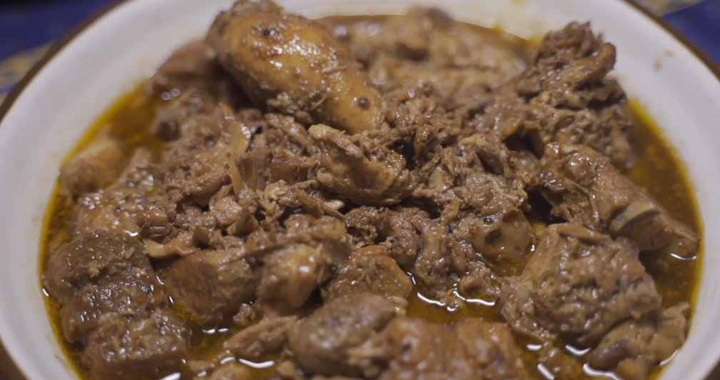
SO what’s in your adobo?
That question will probably garner a thousand and one answers with each province, region, and household in the country having their own versions of the well-loved Filipino dish. Which is exactly what happened over the weekend as netizens, opinion writers, and foodies lashed out at the plan of the Department of Trade and Industry-Bureau of Philippine Standards (DTI-BPS) to develop Philippine National Standards (PNS) on popular Filipino dishes such as adobo, sinigang, lechon, and sisig.
According to a DTI news statement, the BPS has established BPS/TC 92, a technical committee on Filipino Dishes, mainly composed of local chefs and chefs association, to discuss these standards, taking into consideration variations in cooking techniques observed in various regions.
Amy Besa, owner of The Purple Yam in Brooklyn, and the late Cendrillion in SoHo, which popularized Filipino fusion dishes in New York, said on her Facebook page, “Here’s my take: telling Pinoys how to cook and eat their comfort food is bound to be as successful as herding cats. It’s not like there are no Filipino cookbooks available and the government and some ‘experts’ have to step in not just to teach, but to CODIFY our culinary heritage. This brings to mind all those cookbooks from Enriqueta David Perez, Maria Orosa, Nora Daza, Gilda Cordero-Fernando, etc. They will always be the best source material along with our families.”
No penalties
The BPS, created by Republic Act 4109 in 1964, is often heard of during the yuletide season, warning Filipinos to only use certified Christmas lights, as well as other products like imported safety belts, imported plugs and sockets, and the like. It also penalizes retailers which sell these products that don’t meet quality standards. Will restaurants not following the “standard” adobo recipe be penalized as well?
Trade Secretary Ramon Lopez assures this won’t be the case. In a Viber message on Sunday, he told the BusinessMirror, “Not to worry on this. This is just among the many groundwork to develop more creative industry exports. There was a suggestion in the industry to have consultations among Chefs and what will be in a traditional recipe especially for international promotions (example your adobo won’t become paksiw or humba, or your menudo won’t become afritada), or we heard there’s also adobo from Mexico.”
He said, following the standard recipe for these traditional Filipino dishes is “obviously NOT MANDATORY. ‘Standard’ because there are thousands or millions of different ‘lutong adobo’. The attempt is to define what we will promote internationally, and note redefining what it is to different people now. There’s a lot of creativity going on and must be encouraged.” Adobo or adobar is actually a cooking technique popularized by Spain and brought to many of its territories and colonies.
Establishing a baseline
Chef Robby Goco (Cyma), who co-chairs the BPS/TC 92, explained, “In the traditional recipe for carbonara, Italians use guanciale [as their protein]. Others use bacon. But that is the basic recipe for authentic carbonara. What we’re trying to do is just identify the basic ingredients in say Filipino adobo, which is meat, local endemic vinegar, garlic, salt and pepper. Then it’s up to you whatever else you want to add. But we need a baseline for these dishes so when others, especially those abroad, cook it, there won’t be such as fuss.”
He recalled an experience in Canada when his father, Raul I. Goco, was ambassador, and had feted the diplomatic corps with traditional Filipinos dishes cooked by a Filipino caterer. “You know what it had? Star anise and sugar. Of course the diplomatic corps was wowed by the dishes, but was that adobo?”
BPS/TC 92’s standards development process is chaired by Chef Glenda Barretto, founder of Via Mare Corp., with Goco and Chef Myrna Segismundo as vice chairmen. Also in the committee are representatives from the University of the Philippines Diliman-College of Home Economics, Philippine Chamber of Food Manufacturers Inc., Philippine Association of Meat Processors, Inc., the Department of Science and Technology–Industrial Technology Development Institute, the Philippine Association of Food Technologists Inc., Le Toque Blanche (LTB) Chefs Association, Asia Society Philippines, National Commission for Culture and the Arts, and the Philippine Daily Inquirer Inc.
The draft PNS on Philippine adobo will be circulated nationwide, once available, for review and comments of concerned stakeholders. For more information on BPS/TC 92, standards, and standardization activities of BPS, please visit the BPS Standards and Conformance Portal at www.bps.dti.gov.ph.

